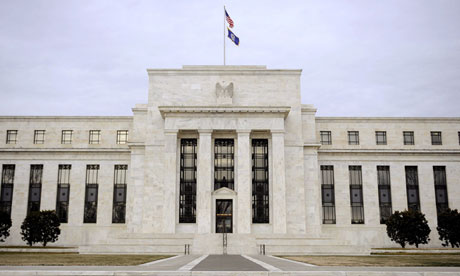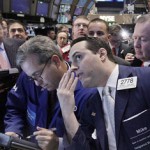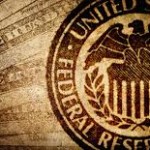Volatility unlikely to alter Fed’s Policy Course

The Federal Reserve still plans to wrap up its bond-buying campaign at the end of October and remains likely to raise interest rates in mid-2015, although it now seems less likely to act sooner, analysts say.
The Federal Reserve is watching carefully as financial markets bounce around, but the likely course of monetary policy remains the same, officials have said in recent public comments and interviews.
The Fed still intends to finish its bond-buying campaign at the end of the month. And it is still likely to start raising interest rates in mid-2015, although it now seems a little less likely that the Fed would act sooner, and more likely it would wait longer.
“Just based on a short period of volatility, that’s not enough for me to make much of an adjustment,” Eric S. Rosengren, president of the Federal Reserve Bank of Boston, said in an interview on Saturday.
Mr. Rosengren and other Fed officials say it is possible the market gyrations, and a downturn in inflation expectations, are early indications that they have once again overestimated the recovery.
“The stock market is much more volatile than the economy,” Ian Shepherdson, chief economist at Pantheon Macroeconomics, wrote in a research note to clients last week.
The Fed has methodically pulled back from bond-buying over the last nine months. It plans to add a final $15 billion in Treasury and mortgage-backed securities during October.
In recent weeks, however, market measures of inflation expectations have fallen sharply. On Friday, a measure called the break-even rate, which is derived from asset prices, implied annual inflation would run around 1.37 percent over the next five years.
“Trying to draw inflation expectations from market prices is perilous,” Mr. Rosengren said. “We need more time, and if it’s a flight to safety that’s a different story than if it’s a story that inflation expectations are becoming unhinged.”
John C. Williams, president of the Federal Reserve Bank of San Francisco, said in an interview with Reuters last week that if the Fed did decide more stimulus was needed, he would prefer to respond first by delaying interest-rate increases.
That view is shared by most Fed officials, Michael Feroli, the chief United States economist at JPMorgan Chase, wrote last week. “We believe Williams’ preference for communication about the expected path of the funds rate instead of more asset purchases is reflective of the majority attitude on the committee,” he said.
“When risk assets dropped last summer, all financial conditions tightened sharply: credit spreads widened, equities fell and yields spiked,” analysts at Barclays Capital pointed out in a note to clients last week. That has not happened this time.
Some Fed officials are concerned that the Fed risks waiting for too long before beginning to raise interest rates. In a recent interview, Loretta J. Mester, president of the Federal Reserve Bank of Cleveland, pointed to research by her staff that found unemployment had “almost” returned to a normal level, based on an analysis of five measures of labor market slack.
Source: NYT- Volatility Unlikely to Alter Fed’s Policy Course





























